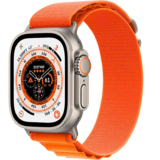Gen Z Turns to Cash to Save Money and Regain Financial Control
A surprising trend is taking shape among Generation Z (those born between 1997 and 2012), as more young individuals are embracing an old-fashioned approach to saving money – carrying cash. According to a recent Credit Karma report released in May 2023, a staggering 69% of Gen Z respondents stated that they are using cash more frequently than they did the previous year.
Ted Reinhardt, a 23-year-old from Overland Park, Kansas, acknowledged that while cash usage is not the predominant choice among his generation, he makes an effort to carry some cash, finding it “nostalgic” and enjoyable to use.
While many Gen Z shoppers with iPhones opt for the convenience of Apple Pay, which eliminates the need for a physical wallet, some believe that such digital features make it too easy to spend money. According to the Credit Karma report, of those Gen Zers who prefer cash for their purchases, 59% do so as a way to budget, while 64% believe they spend less money when paying with cash.
Eli Amaris, a resident of downtown Minneapolis, explained that his financial education has been primarily self-taught. Despite having a bank account, he prefers to rely on cash when making purchases. Amaris finds budgeting challenging without physical cash, as the numbers on his digital bank account don’t feel as tangible or real.
As financial stress remains prevalent, with a CNBC report from April revealing that 70% of Americans are concerned about their finances, Gen Z individuals are turning to cash as a means of exerting greater control over their spending habits. Vlad Winghert, 21, prints out his cash after mobile deposits, allowing him to allocate specific amounts for rent, food, or rideshare apps. The physical presence of money aids in his money-saving efforts.
Dividing cash into envelopes is another budgeting technique gaining popularity among Gen Z. Dave Vang, a finance professor at the University of St. Thomas, emphasized that this practice has long been used for budgeting purposes. With a growing number of individuals living paycheck to paycheck, Vang explained the importance of tracking every dollar meticulously.
On TikTok, Gen Z’s favored platform, the term “cash stuffing” has emerged, similar to the concept of cash in envelopes. Influencers like Charlotte Hall, who boasts over 160,000 followers across TikTok and Instagram, promote cash stuffing as a budgeting method. By allocating specific amounts of cash to envelopes for variable expenses such as groceries, gas, and personal care, individuals can set limits for themselves and physically hold the money, reinforcing restraint in spending.
Hall noted that her most engaged followers are primarily Gen Zers and Millennials living in cities like New York City or those budgeting for families. She also advocates for reducing fixed expenses by contacting service providers and requesting discounts, emphasizing that many people are unaware of the potential savings available to them.
As Generation Z seeks ways to regain financial control amidst economic challenges, the adoption of cash as a budgeting tool reflects a desire for tangible financial management and a more conscious approach to spending.





